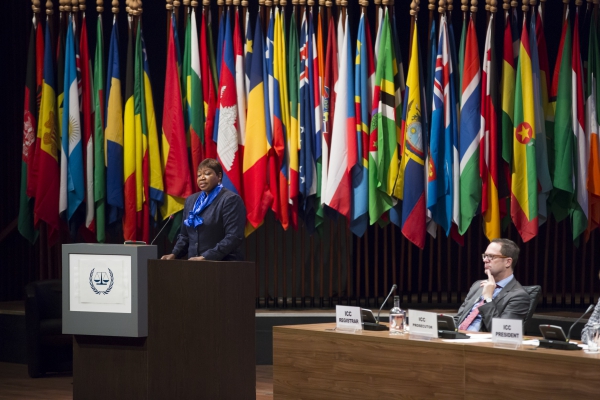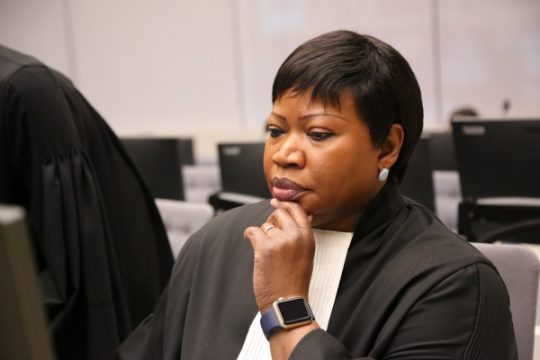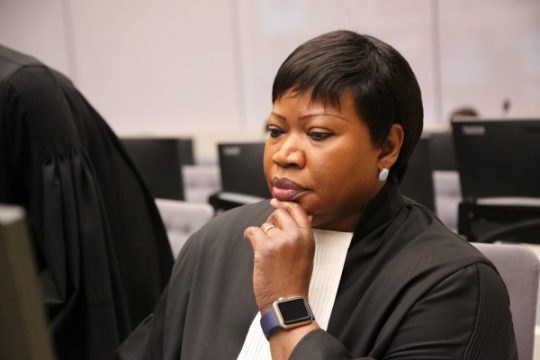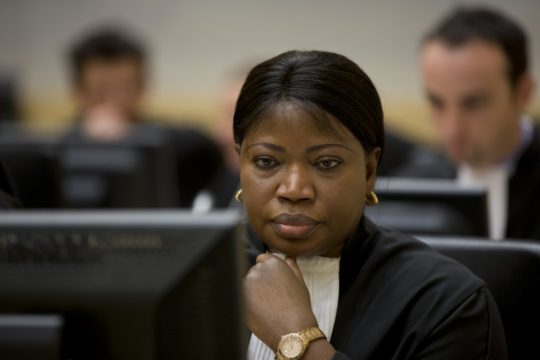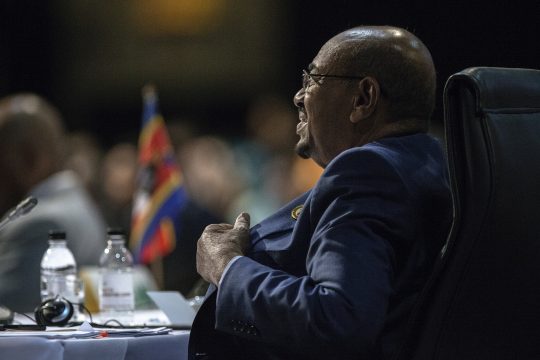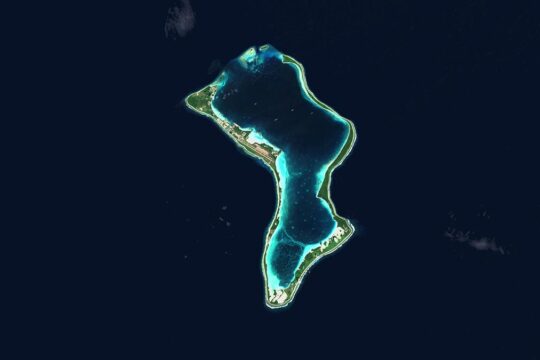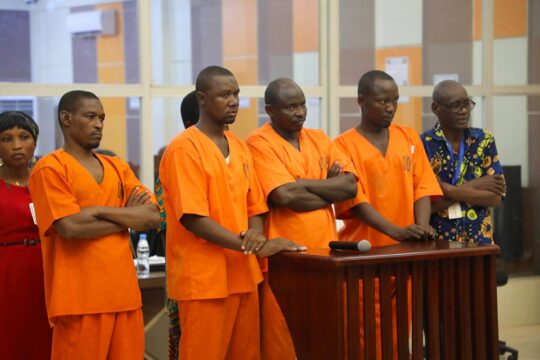At the opening of the International Criminal Court’s 15th Assembly of States Parties on November 16, protest against the Court by some African countries continued but did not, for the moment, spread. The withdrawal announcements in mid-October of Burundi, South Africa and Gambia – who say they will not change their decision – is being used by others as a warning to the ICC. On the first day of the talks, Russia announced it was withdrawing its signature from the Rome Treaty (founding document of the Court), further adding to an already tense atmosphere.
Even if the African protesters have accepted the dialogue offered, they are far from letting the ICC off the hook. “There is a status quo and lots of frustration,” commented a European diplomat after the first three days of debate at the Assembly of the 124 member States meeting in The Hague. Burundi, South Africa and Gambia pulled out of the Court treaty in mid-October, but have come to The Hague. Their withdrawal only becomes effective in a year. As if to dampen the opening, Moscow announced it is withdrawing its signature from the ICC treaty. Russia has not ratified it, but has now ruled out any possibility of doing so and freed its hands to oppose the Court. The Prosecutor in February opened an investigation into crimes committed during the summer 2008 war in Georgia. Moscow’s announcement, on the first day of the Assembly, did not stop the States accepting the “dialogue” proposed. But South Africa asserted it would not change its mind. Taking the stand, Justice Minister Michael Masutha nevertheless promised that his country would not “become a haven for fugitives” and will reform its internal procedures accordingly. More precisely, he said that South Africa’s withdrawal will not end its cooperation with the Court. This is unlike Burundi, whose ambassador claimed the pull-out was “in the name of the Burundian people”. This comes as Burundi is isolating itself from all international mechanisms, so it can be left alone to repress its population. South Africa says it does not support impunity, but had hoped for a different kind of Court.
The June 2015 audience
Its Minister returned to the origin of Pretoria’s defection: Omar Al Bashir’s visit in June 2015. The Sudanese President, who is under two ICC arrest warrants, was among those invited to the African Union summit in South Africa. He was allowed to leave the country freely, despite a South African court decision that he should be arrested. However, Pretoria had consulted the ICC shortly beforehand, as allowed by Article 97 of its Statute. The Justice Ministry’s legal advisor met with ICC Registrar Herman von Hebel to organize the logistics of his visit to The Hague, but found himself before an ICC judge in an audience. “South Africa saw these consultations as being of a diplomatic, not a judicial nature,” minister Michael Masutha explained to the Assembly. After this episode, Pretoria asked the last Assembly to clarify the provisions of Article 97, but without success. At the time, South Africa and others hoped for amendments to two articles which many see as contradictory. Article 27 removes immunity from Heads of State. Article 98, says the Court cannot request a State to act “inconsistently with its obligations under international law with respect to the State or diplomatic immunity of a person or property of a third State”. A number of countries regret that there has been no dialogue on these points. But for others, reopening the debate on immunity for Heads of State would be to attack the very heart of the Rome Treaty. Richard Dicker of Human Rights Watch says that deciding Heads of State can only be prosecuted after they leave office would encourage them to hang on to power for life and make militia leaders want their seat.
The Al Bashir case is also uncomfortable for Uganda. Kampala regrets a recent decision of the Court accusing it of violating its obligations after it invited Bashir in February to the inauguration of newly re-elected President Yoweri Museveni. “It is no different from the invitation to Omar Al Bashir by the United Nations Secretary General” to the ICC conference in Kampala in June 2010, said Ugandan prosecutor-general William Byaruhanga, who called for a “fair balance” between peace and justice. Otherwise Uganda, which was one of the Court’s most virulent critics and was threatening to pull out, has now expressed firm support
Heads of States’ anger goes back to 2008 and the ICC Prosecutor’s announcement of imminent arrest warrants against the Sudanese President. Khartoum has not ratified the Court’s treaty, and so only the UN Security Council had the power to request an ICC investigation into crimes committed in the country. After the two arrest warrants were issued, the African Union asked the Security Council several times to suspend the procedures against Bashir, as it can do if it deems a case threatens international peace and security. “It is at this Assembly that we should debate judicial, political and diplomatic questions,” the Assembly President, Senegalese Justice Minister Sidiki Kaba, reminded the participants. However, some questions can only be dealt with in New York.
The power of Security Council members
But, as strongly denounced by Ghana and Namibia, Security Council members who have not ratified the ICC treaty – United States, China and Russia – can nevertheless request a Council intervention, or block it, as Russia has done over crimes in Syria. Damascus is not a member of the Court, and so only the Security Council can refer the case to the ICC. But Moscow used its veto against such a resolution. Ghana’s ambassador Tony Aidoo slammed the so-called champions of human rights, the privileged few with a Council veto who “not only protect their protégés” but have “used international law in the interests of their dominant power”. Aidoo is counting on the judgment of history which, he said, will remember that “it is not African bombs that caused the humanitarian crises in Libya, Syria, Iraq, the Middle East, Afghanistan and Pakistan”. Namibia also sees the veto as a passport to impunity. The Assembly President shares these concerns and said he thinks the “current system that came out of Yalta” should be reformed. “The power of veto is not a privilege but a heavy responsibility,” said Sidiki Kaba, “and it should be waived for mass crimes.”
Donald Trump’s election to the US presidency and Russia’s now open opposition to the ICC makes it no doubt unlikely that the UN Security Council will refer any case to the ICC for a long time.
Africa targeted?
Even the ICC’s biggest supporters, like Botswana, Sierra Leone and Nigeria, deem it unfair that Africa is constantly being labelled bottom of the class worldwide. And the fact that the ICC has so far issued arrest warrants only against African leaders makes it worse. Will the protesters give the Court time to readjust its policy? In January, Prosecutor Fatou Bensouda opened an investigation on Georgia. She may do the same in coming weeks on Afghanistan. Namibia seems willing to wait and see. Windhoek, which since the last Assembly has announced an imminent departure, has not yet packed its bags, according to the Justice Minister, and any possibility of withdrawal will be put to parliament. In the meantime, Issaskar Ndjoze hailed the Prosecutor’s latest report on her preliminary examinations.
In it, Bensouda details her most recent analyses of crimes committed in five countries outside Africa. She also evokes the possibility of opening an investigation on secret CIA prisons in Europe and has asked Poland, Lithuania and Romania if there are any investigations under way within their national systems. But Kenya does not seem impressed by this argument. The ICC case into crimes committed in that country in 2010 is not completely closed, and Nairobi is attacking, demanding reforms, and leaving everyone in doubt about whether it will pull out.
The tone of debates
“This Assembly does not have a monopoly on the promotion and protection of human rights nor on the fight against impunity, despite claims to the contrary,” said Kenya’s ambassador Rose Makena Muchiri. Like Ghana and Uganda, Kenya regrets the tone of the debates and castigates the UN High Commissioner of Human Rights Zeid Al Hussein for saying at the Assembly opening “let them go!”. The threat of members leaving has been hanging over the ICC since 2013 and the Kenyatta case. Like the High Commissioner, some diplomats and NGOs do not want the Assembly to be taken hostage again. “The States Parties have been accused of deserting the victims of international crimes while passing themselves off as human rights defenders,” said Rose Makena Muchiri, calling such accusations “sad and tragic” at a time when “Africa continues to host millions of refugees that others call illegal immigrants”.
If there is one State that fears a collapse of the Court, it has to be Palestine. But taking the stand, its Foreign Minister Ryad Al Malki did not hide his disappointment as he urged the Prosecutor to open an investigation. “This Assembly is a minuet in a world of heavy metal!” one lawyer commented. Whilst the debates continue, Alep and Mosul continu to count their dead.



